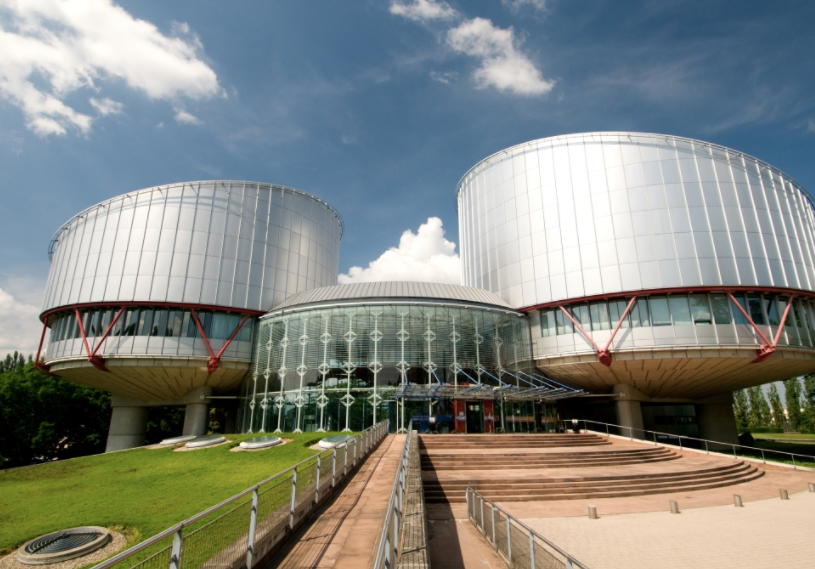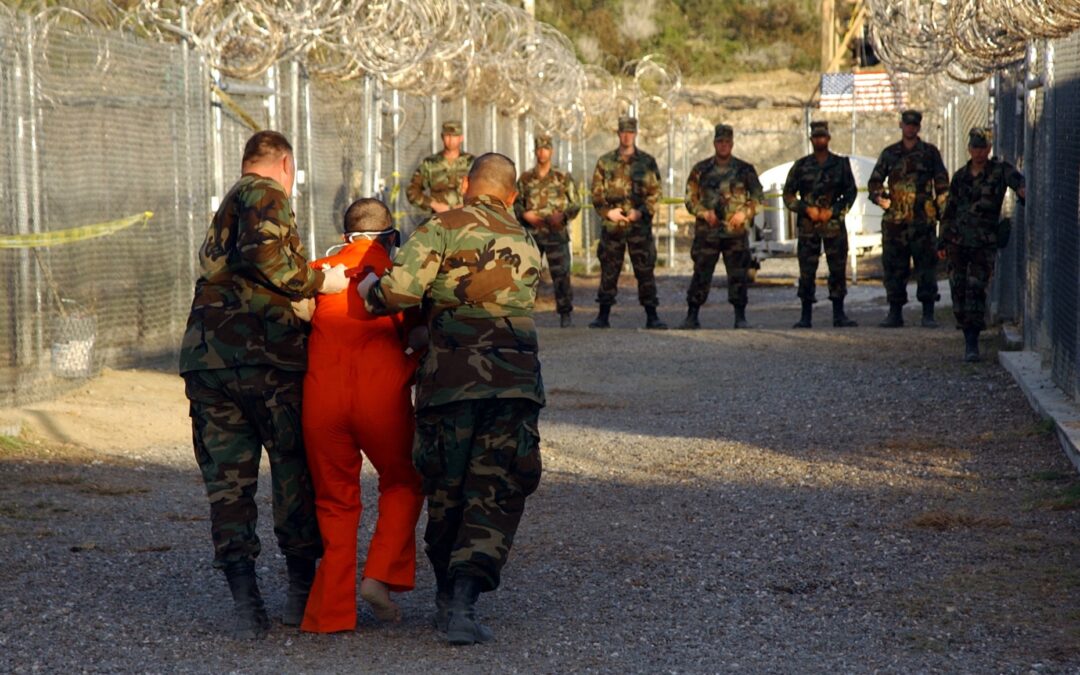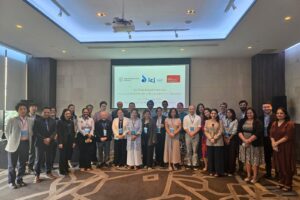
Oct 15, 2019
Today the ICJ, together with ILGA-Europe, the AIRE Centre and Human Rights Watch, submitted a joint third-party intervention to the European Court of Human Rights in the case of Oganezova v. Armenia (Application nos. 71367/12 and 72961/12).
In their written submissions to the Court, the interveners addressed the following issues:
(a)
under European and international human rights jurisprudence, the victim’s identity as an lesbian, gay, bisexual or transgender (LGBT) person is relevant to the assessment of whether the threshold for torture and other ill-treatment under Article 3 of the European Convention of Human Rights (ECHR) has been met. Specifically, the discrimination directed towards LGBT persons may indicate a particular motive and intent that may meet the threshold of Article 3 ECHR;
(b)
the Contracting States have a positive obligation to protect persons in their jurisdiction from violence and harassment based on their real or imputed sexual orientation and/or gender identity or expression, including the obligation to prevent, investigate, prosecute, punish and remedy such acts. In particular, Contracting States have the additional procedural obligation to take all reasonable steps to establish whether any hatred or prejudice connected to a protected characteristic may have played a role in the violent attack, where acts of violence are motivated in whole or in part by prejudice against an individual’s real or imputed sexual orientation and/or gender identity or expression; and
(c)
That the attitudes and practices in responding to violence and harassment against LGBT people in Armenia provide important contextual information in analyzing the case.”
Europe-Oganezova v. Armenia-Advocacy-Legal Submission-2019-ENG (full text of submission, in PDF)

Jul 21, 2019
On 19 July, the ICJ, jointly with ILGA Europe, FIDH, KPH and NELFA submitted a third-party intervention in the case of X. v. Poland before the European Court of Human Rights.
The case concerns the refusal of the Polish authorities to grant a lesbian mother custody of her children.
It raises issues concerning whether such a refusal is the result of discrimination on the grounds of her sexual orientation, and therefore, as such, would constitute prohibited discrimination in the enjoyment of Convention rights, contrary to Article 14 of the Convention, read in conjunction with Article 8.
In the brief, the ICJ, together with its partners, set forth the current status of play of the case-law related but not limited to child custody decisions where one or both of the parents are lesbian, gay, bisexual, transgender or intersex (LGBTI) individuals.
The third-party interveners have urged the Court to build upon its recent jurisprudence asserting and protecting the rights of LGBTI persons by drawing on its approach to consider the European Convention on Human Rights as a living instrument that needs to be interpreted in the light of present-day conditions.
Europe-X v Poland_TPI-Advocacy-Legal submissions-2019-ENG (full intervention, in PDF)

Jun 28, 2019
The ICJ and Amnesty International presented today a third party intervention in the case of al-Hawsawi v. Lithuania before the European Court of Human Rights.
The interveners made submissions to the Court in this case on complicity with the US-led rendition, secret detention and interrogation programme on:
- knowledge imputable to Contracting Parties, in particular, Lithuania, at the relevant times;
- enforced disappearance as a violation of Article 3 of the Convention;
- non-refoulement obligations;
- and post-transfer obligations under the Convention.
Mustafa al Hawsawi, a Saudi Arabian national currently detained at Guantanamo, was arrested in Pakistan in 2003 and subjected to rendition and secret detention. He was one of the many “high-level” persons subjected to torture following his rendition.
He was subject to treatment that could “easily approximate waterboarding”. He arrived in Guantánamo on 6 September 2006.
He is currently subject to proceedings before a military commission together with four other defendants; they are all charged with being involved in the 9/11 attacks.
The UN Working Group on Arbitrary Detention found that his right to liberty and to a fair trial had been violated and that the US has a duty to release him and provide him with compensation.
Several UN Special Rapporteurs raised serious concerns at the denial of medical treatment for Mr al Hawsawi, leading to a deterioration in his health, and the inhumane detention conditions.
The full intervention can be downloaded here: Al-Hawsawi-submission-2019-ENG

Jun 7, 2019
The ICJ has presented its response to a European Commission consultation on how to strengthen protection of the rule of law in EU Member States through promotion, prevention mechanisms and measures to hold States accountable for rule of law violations.
In its response to the European Commission consultation , the ICJ highlights the declarations of ICJ Congresses from the Act of Athens in 1955 to the Tunis Declaration of 2019, which have helped to define and explain the rule of law. The ICJ’s long experience of working to advance the rule of law around the world has shown the need both for institutional and procedural safeguards for the rule of law, and for developing strong national rule of law cultures. The EU has an important role to play in supporting these protections in EU Member States, but it does not act alone in this field. The EU’s work on rule of law should be carefully positioned to take account of UN and Council of Europe standards and mechanisms, in the interests of the most effective possible strategies to protect the rule of law in Europe. Furthermore, for the EU to be credible in the action it takes to protect and promote the rule of law, the EU institutions themselves met be above reproach in their compliance with Rule of Law principles.
As regards the promotion of the rule of law, the ICJ underlines the importance of a shared understanding and commitment to the rule of law amongst legal and political communities, and the general public. The EU can make a significant contribution to supporting such understanding, through support and funding for civil society in its defence and promotion of the rule of law, through building the capacity of legal professionals including judges, prosecutors and lawyers to uphold the rule of law, and through support for building the engagement of national parliaments on rule of law issues.
In order to prevent threats to the rule of law, the ICJ supports the development of regular, uniform rule of law reviews by which EU Member States’ laws and practices are measured against objective standards by independent experts. Such assessments should be removed from political influence and should be conducted through an open and transparent process, and should be co-ordinated with existing initiatives of the EU and mechanisms of the UN and Council of Europe. The reviews could be conducted by a new independent, specialised Agency on the rule of law, or in co-operation with the Venice Commission of the Council of Europe.
It is vital that there are effective EU mechanisms to respond to violations of the rule of law in EU Member States. Both the European Court of Human Rights and the Court of Justice of the EU are essential to this response. The EU should therefore do all in its power to support the European Court of Human Rights and the implementation of its judgments. Infringement proceedings before the CJEU should be initiated regularly and promptly where the Commission identifies rule of law problems that violate EU law or affect the application of EU legislation. Institution of Article 7 TEU proceedings in appropriate cases is also vital to uphold the credibility of any rule of law assessment mechanism, and in the long term, consideration should be given to amending the treaties to strengthen this mechanism.
The full ICJ submission can be read here.

Jun 3, 2019
Today, the ICJ and IBAHRI filed their submission to the UN Human Rights Committee on the compliance by Tajikistan with its obligations under the International Covenant on Civil and Political Rights.
During its 126th session, from 1 to 26 July 2019, the Human Rights Committee will examine the Republic of Tajikistan’s implementation of the provisions of the International Covenant on Civil and Political Rights, including in light of the State Party’s third periodic report.
In the context of this review, the International Bar Association Human Rights Institute (IBAHRI) and the International Commission of Jurists (ICJ) bring to the Committee’s attention some issues of concern pertaining to Tajikistan’s implementation of the ICCPR. Their submission highlights a number of concerns relating to the lack of independence of the legal profession in Tajikistan, and its consequences for the protection of certain Covenant rights. In particular, the submission addresses:
(a) the legal profession’ lack of independence;
(b) the authorities’ interference with lawyers’ legitimate activities;
(c) restrictions placed on lawyers’ access to their clients and the rights of the defence; as well as
(d) specific cases of concern.
These concerns are relevant for the Committee’s evaluation of the Republic of Tajikistan’s implementation of the right to a fair trial under article 14 ICCPR, as well as other Covenant rights, including for example the State’s obligations under articles 2, 7, 9, and 10 of the ICCPR.
See the submission here: ICCPR report_Tajikistan_IBAHRI_ICJ_2019_eng.









